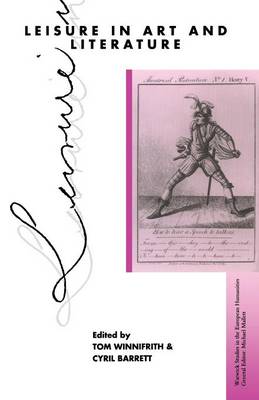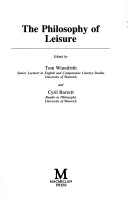Warwick Studies in the European Humanities
2 total works
The description or depiction of leisure activities has formed part of the subject matter of art and literature for a long time. This volume looks at funeral games in Homer, leisure as depicted in painting, and the part that literature played in promoting athleticism in public schools and Oxbridge.
Leisure, whether chosen or forced upon us, is rapidly becoming a predominant form of life for everyone. What few people realise is that the notion of leisure is highly complex and to be handled with care. In this book the authors have endeavoured to confront the complexity of this notion and clarify it. In particular they have addressed themselves to the paradoxical question of work and leisure: which is liberating? And they discuss the philosophy of leisure in its historical context, particularly that of Aristotle, for whom leisure was the supreme form of human life.

